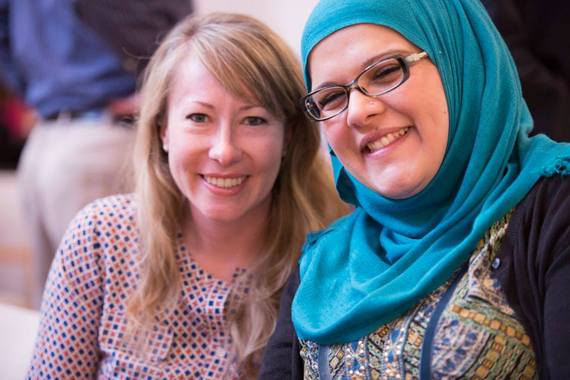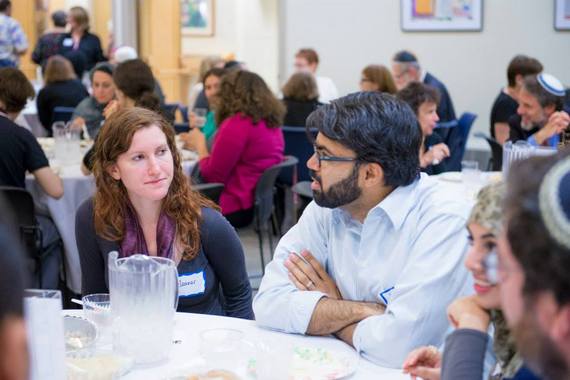I read Matti Friedman's article on Tablet published last month and was deeply intrigued. In fact, I read it several times because the picture he provides in the way news reporters craft a story happened to me not long before he published his piece. The article, "An Insider's Guide to the Most Important Story on Earth," which was shared on Facebook more than 78,000 times, details how the major news agencies are more interested in crafting a story than they are reporting on the actual news. He shows how the Israeli-Palestinian conflict that claimed the lives of 42 people in all of 2013, roughly the homicide rate every month in Chicago, warranted more than 40 Associated Press reporters, more than the AP had in China, Russia or India.
The article clearly touched a nerve at the heart of the major news media organizations. The former bureau chief for the AP in Jerusalem wrote a response, in which he winds his way through a discourse on the theological and historical nature of the Jewish people and the rise of Jesus:
"The truth is the story of Israel is that of a nation rising from the ashes of the worst genocide in human history, being attacked from all sides upon its inception. Depending on your point of view, it's also a story about the persecuted becoming the persecutors. All of this, of course, is happening to the people of the Bible, the descendants of the Hebrew slaves who were led out of Egypt by Moses and from whose ranks emerged Jesus Christ. It's as if a new chapter of the Bible is being written in our times."
To read those words from the former AP Jerusalem bureau chief one can almost feel the palpable sense of story making at work in the reporting of the news. The reporters become less journalists and more movie makers as they try and create a geopolitical drama, in which they have already decided who are the villains and who are the victims.
In my work at a non-profit in Chicago I had the responsibility to organize an annual Jewish-Muslim event that fosters community building. The participants witness and share in each other's faith traditions, hear words of wisdom from leaders in both respective communities and break bread. It is a remarkable event that just celebrated its 9th year and has brought crowds of up to 900 people in the past. The event also has nothing to do with the Israeli-Palestinian conflict and focuses exclusively on cultivating a community of Chicago Muslims and Jews committed to working together for a more just city.
The timing of this year's event coincided with the exact evening when Israeli soldiers entered the Gaza Strip in Operation Protective Edge. If there was ever a moment that tested our ability to share conversation, a meal and faith together this year was that test. Yet, despite the external tensions, our participants came to the event and the evening was marked by moving moments of prayer and joyful sharing of a delicious meal and not one moment of outburst. However, from a couple weeks out from the evening through the very night itself I fielded phone calls from journalists -- local, national and international -- looking "for a story."
Were you offering a prayer for peace in the Middle East? Were you addressing the conflict? Are you going to fly Israeli and Palestinian flags next to each other? Will there be an image we can capture for our TV broadcast?
The answer to all these questions was: We are doing something remarkable in Chicago. We are showing that Jews and Muslims, from the very devout to the ardently secular, can come together and build friendships and shared space and commit to working for justice in the city they live in, united. In a time of conflict spread all over the globe and increasing hostilities between people of different religions, cultures and nationalities and in a city known for its segregation, this was truly a notable moment.
The reaction to my answer was the same, albeit acted out in different ways.
There was the TV news station that set up a camera waiting for "the moment" that would fit with the story they already decided they wanted to tell. There was the disappointed radio journalist who asked me twice if we were sure that there was no angle on the conflict. She was told by her supervisor to find a story that already fit the narrative they wanted to tell. Jews and Muslims only encounter each other in confrontation on opposite sides of the street during protests or in transcendent moments of prayers for peace in the Middle East, according to "the story." Jews and Muslims building real community dedicated to justice in their city, whether working together to prevent deportations of undocumented immigrants or standing in solidarity against the trend of gun violence in Chicago, that was not "the story." There was even the reporter who wrote a whole piece about the event and cast it as dealing exclusively with the Gaza conflict, without ever having spoken to a single person or organization involved in the evening, and syndicated it out to media worldwide.
When one reads Matti Friedman's article it is almost too hard to believe. Can it really be that major news organizations do not actually care about what is really happening and rather filter out anything that does not fit with their vision of what they wish to present? Can it really be that some of the most prestigious and distinguished news agencies in the world are guilty of journalistic malpractice? I am certainly not a journalist nor an expert on journalism by any stretch of the imagination but what this summer and our Muslim-Jewish event in Chicago has taught me is that Friedman's claims might not be so far-fetched after all.

